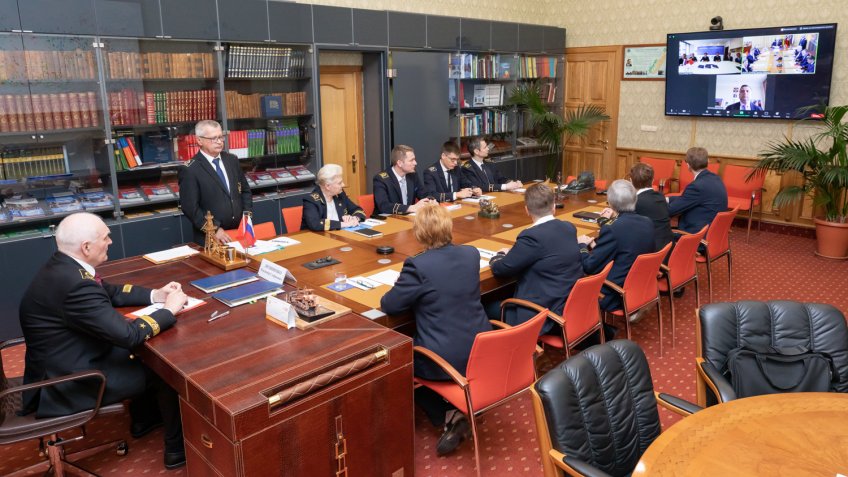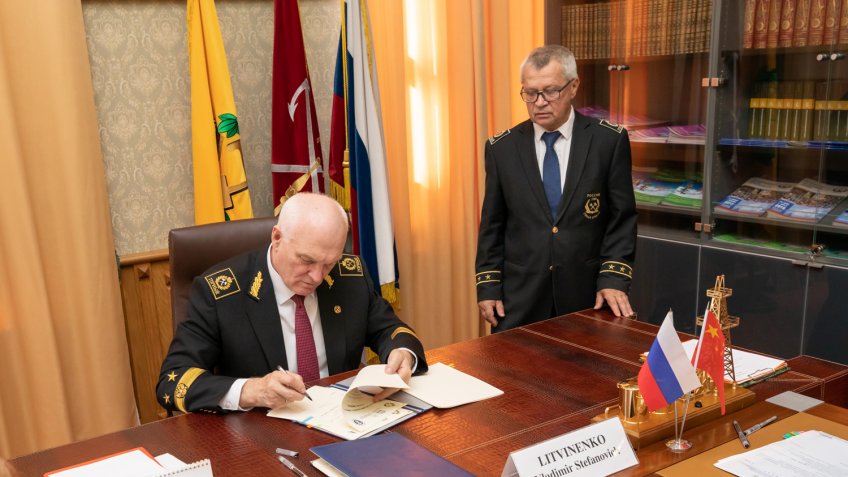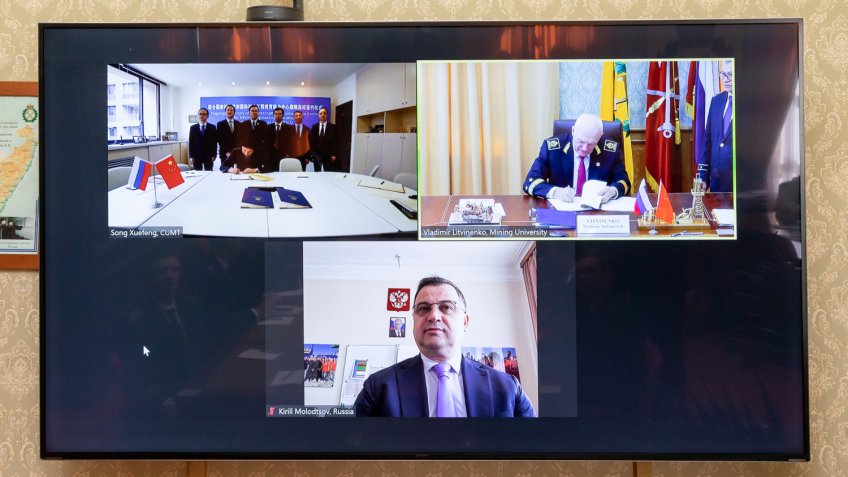
This is already the sixth foreign scientific and educational subdivision of the Center. Its tasks will include coordination at the national level of cooperation between Russian and Chinese higher education institutions, increasing academic mobility, expanding the range of joint research, and a number of others.
On Thursday, July 9, the University of Mining and Technology (CUMT), located in Xuzhou, received the status of a peer university of the International Competence Center for Mining Engineering Education under the auspices of UNESCO. The signing ceremony was held online. The ceremony was attended by Vladimir Litvinenko, Chairman of the Board of Governors of the Competence Center, Song Xuefeng, President of the China University of Mining and Technology, and Kirill Molodtsov, Assistant to the Head of the Administration of the RF President.
The Competence Centre under the auspices of UNESCO is a mechanism that not only enables us to integrate more actively into the international scientific and educational space, but also creates the conditions for the increase of our contribution to the development of national economies. First of all, this is so due to the intensification of scientific research and its introduction into production through involving representatives of industry and business community in our work, Vladimir Litvinenko said when opening the meeting.
Ten years ago I met in China with graduates of St. Petersburg Mining University. These are people who have made a huge contribution to the formation of the coal industry, non-ferrous metallurgy, and other sectors of the national economy of the PRC. Many of them then, as before, taught at universities or acted as consultants to large mining companies. And their younger colleagues, who studied at Soviet or already Russian universities, were engaged in research in the field of new composite materials and achieved significant success in this sphere, Litvinenko emphasized.
CUMT President Song Xuefeng thanked the leaders of the Competence Center for the prompt preparation of all necessary documents (only a month has passed since the signing of the protocol of intent). He also recalled that St. Petersburg Mining University and China University of Mining and Technology have long and successfully interacted with each other (for example, as part of academic exchange programs). However, now this cooperation will reach a new level.
The new status will allow us to coordinate in China the participation of students, postgraduate students and scientists in the programs of the International Competence Center. That is, other higher educational institutions, as well as research centers and industry, will be involved in our joint work. We are absolutely sure that the UNESCO Center will develop, and this will allow all its associate members to progress,” Song Xuefeng said.
The assistant to the head of the Presidential Administration Kirill Molodtsov attributed the signing of the agreement as “a landmark event.” He stated that the International Competence Centre for Mining Engineering Education faces many ambitious challenges. This is the creation of a unified international space to increase the mobility of students, postgraduate students and teachers; the introduction of a single global certification system for engineering personnel; enhancing mining competencies, and creating a positive image of the industry in the public mind. Prospects for the implementation of these tasks, thanks to the expansion of the network of peer universities of the UNESCO Center, of course, become more obvious.
Vladimir Putin is deeply interested in issues of Russian-Chinese energy cooperation. In this regard, the introduction and development of new competencies in this area is particularly essential. For our part, we guarantee all possible assistance to your positive initiatives in this area, Kirill Molodtsov assured those present.
After the signing ceremony, the parties discussed potential topics for joint scientific publications of Russian and Chinese scientists. Among them are those concerning the leading role of hydrocarbons in maintaining the stability of the global energy system; the possibility of increasing the proportion of hydrogen in the total volume of energy generation; environmental impact of CO2 emissions; increasing the efficiency of coal use and reducing its negative impact on ecosystems; land restoration, and a number of other topics.


